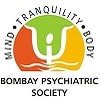drvikasdeshmukh@rediffmail.com
Signs that your child may have Intellectual Disability
The clinical picture in a child with Intellectual Disability will vary depending upon the Intelligence Quotient (IQ).
- Children with Mild ID may not get diagnosed up until they reach school. They have scholastic backwardness. Social and communication skills start lagging behind as compared to their peers, as they grow older. Vocational skills may remain adequate enough so they can support themselves. Although these children achieve some social and vocational skills, they need a supportive environment.
- Children with Moderate ID are usually diagnosed at a younger age. They have academic difficulties and also communication and social skills are affected. In supportive settings and a high level of supervision, they are able to achieve some vocational competency.
- Children with Severe ID not only have scholastic difficulties, but their speech and motor development is also affected. They may need extensive supervision and can be taught basic level of self care.
- Children with Profound ID are severely limited in communication and motor skills and need constant supervision. They usually need nursing care even in adulthood. Some children display behavioural disturbances in the form of aggressive behaviours, self harming behaviours, anger outbursts, etc.
What are the primary causes
Causes can be various and at times multi-factorial.
- Many genetic diseases may lead to certain Syndromal disorders that may have ID as a part of their symptomatology; for e.g.: Down’s Syndrome.
- Sometimes infections that a mother acquires during pregnancy or exposure of developing foetus to radiation or illicit drugs (consumed by pregnant mother), for e.g.: alcohol. Certain complications of pregnancy like Hypoxia in the newborn may be a contributing factor.
- Post- pregnancy complications can also be causative.
- Even in the early developmental period, head trauma, infections, other childhood disorders may become responsible.
Treatment/Therapy for Intellectual Disability
Most parents that accompany their children do so in view of either scholastic difficulties or behavioural issues. Parents may present with a younger child in cases of severe ID. In cases of mild to moderate ID, parents may recognise the signs later on.
- The children are evaluated in detail, regarding the clinical history. In cases of children, the history right from conception to pre-natal history to birth history to post-natal to developmental history is noted. The history is important so as to establish etiology. Etiology is clearer in cases of severe/ profound ID. A neurological examination may be needed. In some children additional testing in the form of chromosomal studies, urine and blood analysis, Electroencephalography, Neuroimaging and other tests like Hearing and Speech evaluations may be done.
- In some cases, psychological testing (IQ tests) may be needed for establishing the diagnosis. If clinically diagnosable, psychological testing is still recommendable so as to diagnose the severity of ID.
- Once diagnosed and the severity established, the further management depends greatly on the severity of ID. In Mild and Moderate cases, vocational training is recommended. In severe and profound cases, teaching child self care and basic communication is more important. In all cases, certification is highly recommended.
- For behavioural disturbances, medication maybe prescribed. Remedial education maybe tried for scholastic difficulties in mild or borderline cases. In some parents, counselling regarding the child’s diagnosis and learning parenting skills/ techniques to deal with behavioural issues of child become more important.
Contact US
125, First floor, Arenja Arcade, Above Domino’s Pizza, Beside Kshirsagar Hotel, Sector 17, Vashi, Navi Mumbai Maharashtra – 400703.
call 9987 1281 48
Request AppointmentCopyright © All Rights Reserved, By Manovikas Clinic

